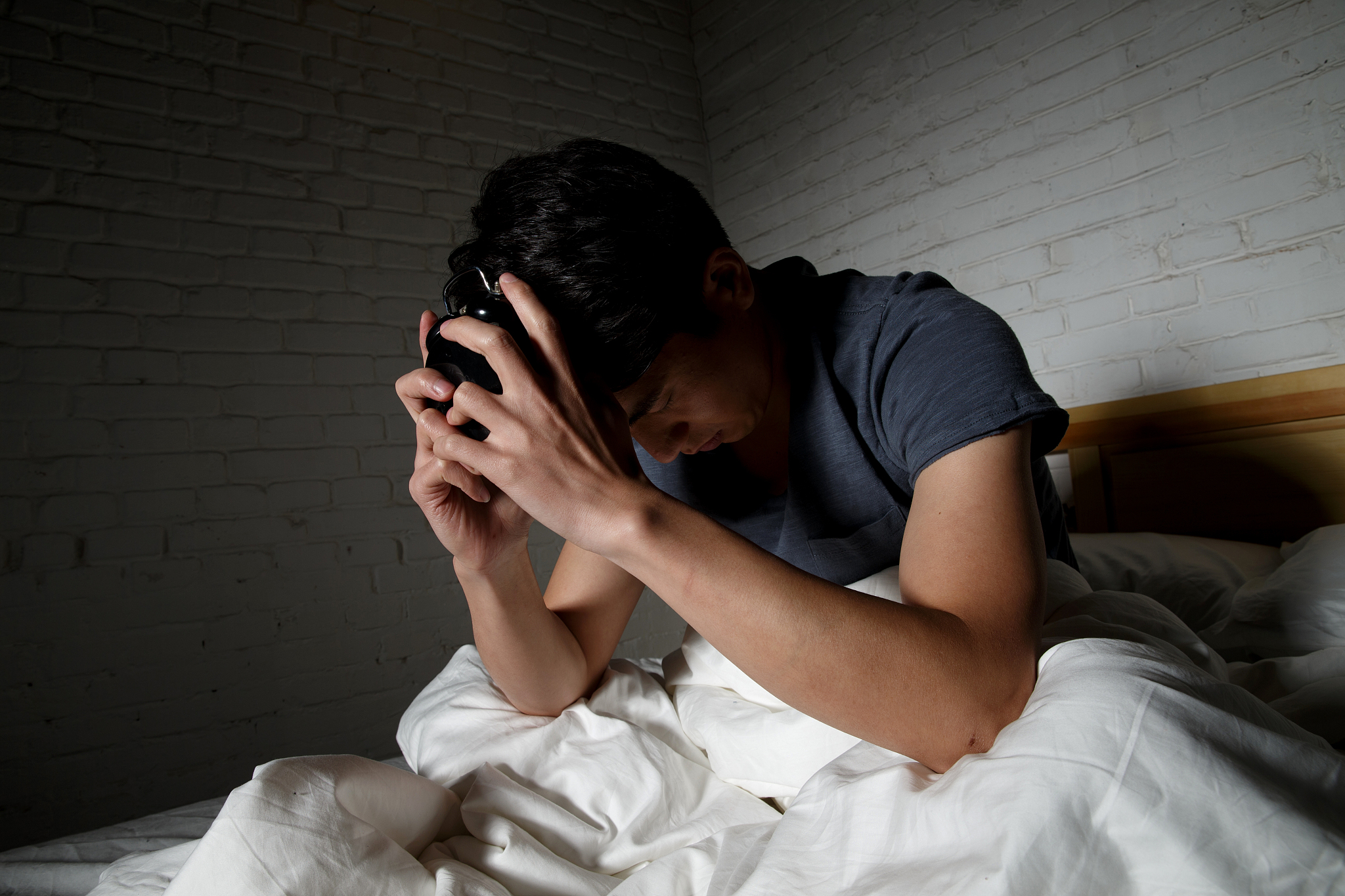
Use sleep spray, light scented candles, eat melatonin fudge, wear a steam eye mask – these are the four steps that 27-year-old Li Tian must go through every night before going to bed.
With an ever-growing need for sleep-enhancing products, industry giants and entrepreneurs in China have produced a variety of sleep aids, but their true benefits are still being questioned.
A survey published by the Chinese Sleep Research Society shows that more than 300 million Chinese have sleep disorders, and insomnia in Chinese adults is as high as 38.2 percent. Due to the COVID-19 pandemic, people in the past year have spent more time at home, but this has led to sleep being delayed by up to three hours on average per night.
More and more people with this issue, like Li, began to try various sleep aids, which gave birth to a huge "sleep economy."
From pillow bedding products to eye masks and earplugs, from medication to electronic sleep assistance, the boundaries of sleep products are rapidly expanding and are increasingly high-end.

Who is paying for sleep?
Li works for an internet company in Beijing's Haidian District. Normally he gets home from work at 10 or 11 p.m.
"Although I am tired, I will be more awake after taking a bath at home, and I also want to have some fun before going to bed. Eating, playing games on the phone, watching TV dramas," he said. It's already around midnight by the time Li tries to sleep, and he usually needs about one or two hours to do it.
"This is common for many of my colleagues, many of them go to sleep at about 3 or 4 o'clock in the morning."
Li said that he spends hundreds to thousands of yuan (tens to hundreds of U.S. dollars) on sleep aids every year.
"In the beginning, I took melatonin, but now I do acupuncture and use some other sleep aids like the Brainwave sleep cap." This nightcap can measure changes in human brain waves, define the user's sleep stage, and output audio of different frequencies to help people with insomnia fall asleep.
In addition to melatonin, sleep aids such as steam goggles, sleep-enhancing latex pillows, earplugs, and sleep aid sprays have also become popular in the market.

According to survey results published by the Chinese Sleep Research Society, among the insomniac population, young people born later than 1990 have the most prominent sleep problems.
"Approximately 69.3 percent of young people will not go to bed until 23:00, and 34.8 percent of young people take a long time to fall asleep. It is difficult for them to fall asleep within 30 minutes," the survey said.
According to Tianyancha, a company that focuses on enterprise credit information, there are currently more than 200 companies in China selling products in three categories: "sleep," "smart sleep products" and "sleep assistants," and more than half of them were established after 2015.
Do sleep products actually work?
However, are these various sleep aids really effective? Many people have doubts.

Zhang Xin, an employee at a game development company in Shanghai, told CGTN that melatonin, aromatherapy, and sleep aids don't help him fall asleep. Only sleeping pills work for him.
And he knows sleep aids can no longer help a lot of people fall asleep.
So what should we do if we encounter insomnia? Xu Jie, the chief doctor in the field of sleep research at Beijing Gaoxin Hospital, said that some sleep aids on the market do not have enough clinical research evidence, nor can they be used as a conventional auxiliary treatment for insomnia.
Xu said that the causes of both primary and secondary insomnia are complex. If you have insomnia of either kind, you should seek medical treatment before buying any sleep aids.
"For people with insomnia, the most effective technique is to maintain regular routines," said Yin Guoping, deputy chief physician of the Sleep Medicine Center at Beijing Tsinghua Changgeng Hospital, adding that "if you want to sleep quickly, you must first learn to relax before trying any sleep aids."
"Once it is diagnosed as pathological insomnia, you should seek help from a doctor."

